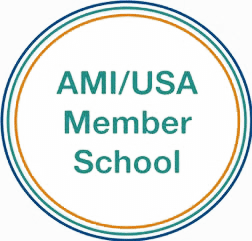
Dr. Maria Montessori said, “Free the child’s potential, and you will transform him into the world.”
Dr. Montessori acted on this sentiment by developing an educational philosophy based on a model of human development. In Montessori elementary school, students work at their own speed and their own level, on an interrelated curriculum that permits students to gain more profound knowledge in any subject they choose.
The foundation of Dr. Montessori’s teaching method is based on the belief that the child is born into this world full of potential. The unique philosophy she developed was developed to harness the child’s innate possibility and allow the child to take accountability for their learning.
So, what is the Montessori philosophy?
Montessori’s academic method functions on two primary beliefs: The first, that psychological self-construction in children happens via environmental interactions, and the second, that children have an inherent course of psychological growth.
Self-Determined Learning
Dr. Montessori believed that education should be student-led and self-paced but guided, assessed, and enriched by knowledgeable and caring teachers, the leadership of their peers, and a nurturing environment. Montessori elementary teachers are trained to “follow the child”, encouraging responsibility, giving freedom within limits, and providing a prepared setting for them to learn with ease and joy.
Within the Montessori philosophy, students are introduced to thorough knowledge in many areas including art, music, history, language, mathematics, biology, geography, and physical education. Learners are encouraged to engage in multi-sensory learning, using spirited inquiry and curiosity. As individual students, Montessori elementary school students are given the space and time needed to understand each concept thoroughly and meet their own learning goals.
Growing Humanity
The philosophy supports the idea of multi-age classrooms designed to create natural opportunities for independence, citizenship, and accountability. With this freedom and backing to challenge, explore, and make connections, the Montessori method helps students to grow up confident, self-directed learners and citizens. According to Dr. Montessori’s philosophy, this creates learners who can work collaboratively, think critically, and act with integrity.
Dr. Montessori noticed a number of distinct elements of human psychology that she determined as “human tendencies”. These include activity, communication, exploration, order, and purposeful activity. These human tendencies are investigated and grown within a Montessori education, embracing children’s organic instincts as humans and therefore, learners.
Learning Planes
Furthermore, Dr. Montessori observed a number of distinct terms, or “planes”, of human development, recognizing different characteristics, learning methods, and developmental imperatives in each of these planes and the educational approaches specific to each period.
The first plane extends from birth to around six years of age. The first-plane learner has an absorbent mind, is a sensorial adventurer, and is engaged in the developmental work of psychological self-construction and building functional independence. In Montessori education, the classroom responds to this plane by making materials and activities available to the young learner.
The second plane of a child’s growth lasts from six to twelve years old. Dr. Montessori observed many physical and psychological changes in children during this period, and developed lessons, a classroom environment, and materials to respond to the new growth. She noticed students’ preference to work and socialize in groups, along with their reason and imagination power developing. These observations produced her philosophy that the work of the second-plane learner is to form academic autonomy, ethical values, and social skills.
The third plane extends from twelve eighteen years of age, the period of adolescence. In this stage, psychological changes and problems with concentration are emphasized, as well as the creative tendencies and the development of justice and personal dignity. The Montessori philosophy is that the work of the third plane child is to construct their adult self with the support of their teachers and classmates.
The underlying philosophy of Montessori elementary school is a philosophy of individualized growth. It turns away from conventional measures of achievement, leaving behind grades and tests in order to put more focus on the development of the student. Dr. Montessori developed this philosophy in the early 20th century through a scientific investigation with her students. Since then, the Montessori method has been used all around the world to feed the potential every child is born with.
The Montessori School of Fremont applies the educational philosophy and methods of Maria Montessori, M.D., a renowned Italian physician, and child educator. The Montessori Elementary program is a natural extension of the Primary program and builds on the knowledge and skills gained in the Primary. It is our aim to help your child reach their greatest potential. Visit our blog to learn more about our method or reach out today to begin your journey with The Montessori School of Fremont.
